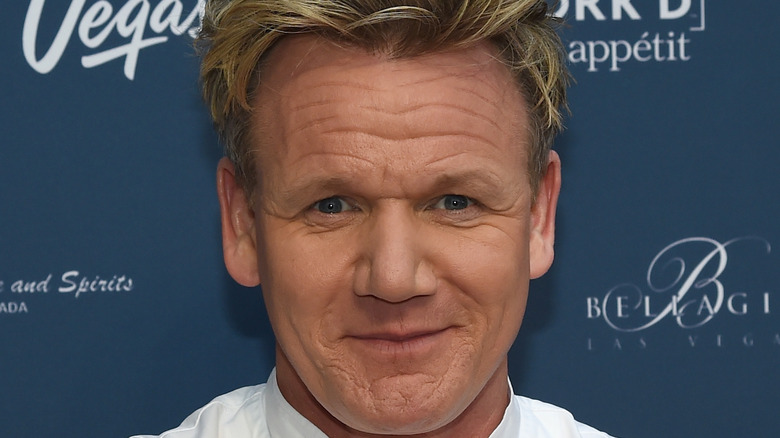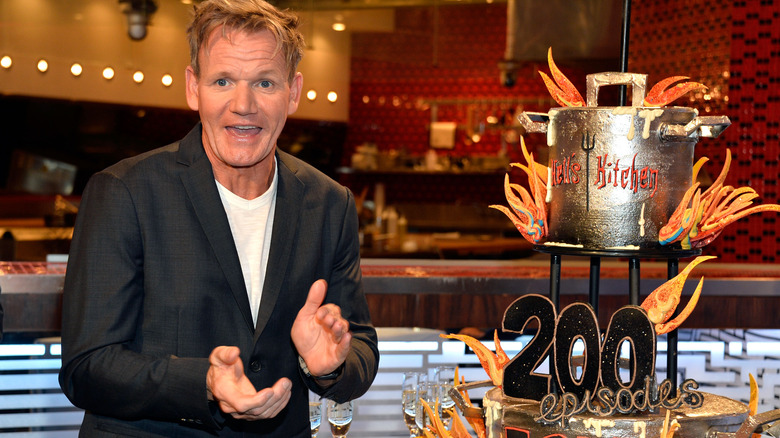Cooking-based reality shows continue to be big business for obvious reasons. There are few activities more satisfying than watching people make delicious-looking food before being judged harshly for it while we sit on our sofas, safe from the drama but nonetheless entertained (and usually getting comfortably hungry in the process). Of all these shows, though, “Hell’s Kitchen” is among the longest-running and most successful, garnering quite a large following since its 2005 debut (via IMDb).
Headed up by infamously tough chef Gordon Ramsay, who has incredibly high standards and refuses to take any guff from contestants, “Hell’s Kitchen” frequently features breakdowns, arguments, and tears but, as the Brit firebrand told EW, Ramsay doesn’t regret any of it, reasoning, “I believe in getting straight to the point.”
However, although there are moments it seems like the wannabe chefs are trying to annoy the judges with their lack of experience, the reality is far more insidious.
The participants aren't as amateur as they might appear
In an interview with EW, no-nonsense “Hell’s Kitchen” host Gordon Ramsay admitted he gets “heartburn” and “indigestion” and frequently pops either Pepto-Bismol or Xantac to alleviate the intensity of both when faced with a contestant who seemingly can’t cook basic meals — something which consistently happens despite the show’s long run. As Ramsay explained, “The biggest problem from a chef point of view is everybody thinks they can cook because they hosted a dinner party. They think they can transfer that skill … to running a restaurant.” However, according to a damning report by the New York Post, many of the biggest shock moments on the show are engineered by producers.
Season 6 contestant Tek Moore revealed ingredients were swapped out, to make participants look foolish. For example, salt and sugar would be switched around to make it seem like the amateur chef in question simply didn’t know the difference. This would explain why, year after year, people show up on “Hell’s Kitchen” who appear to have no clue how to cook. According to Reality Blurred, it takes just 18 days to film a season but post-production can last up to six months, suggesting much of the story is created in the edit.
Ramsay himself told EW the secret to his success is keeping it real, noting, “It’s drama but unscripted” and comparing the pressure he’s under to that of the contestants themselves.
Source: Read Full Article




